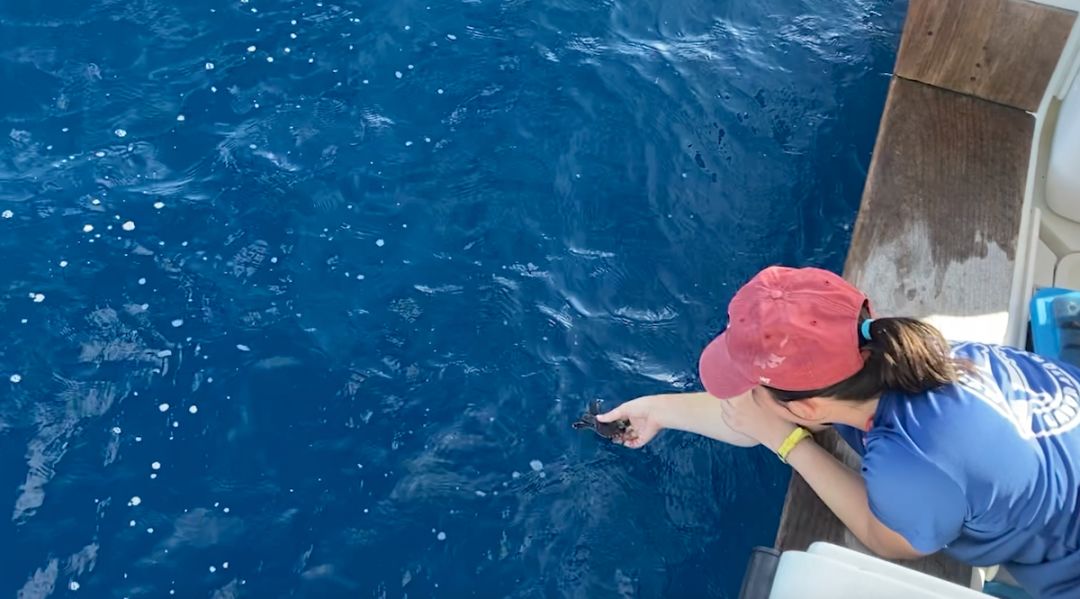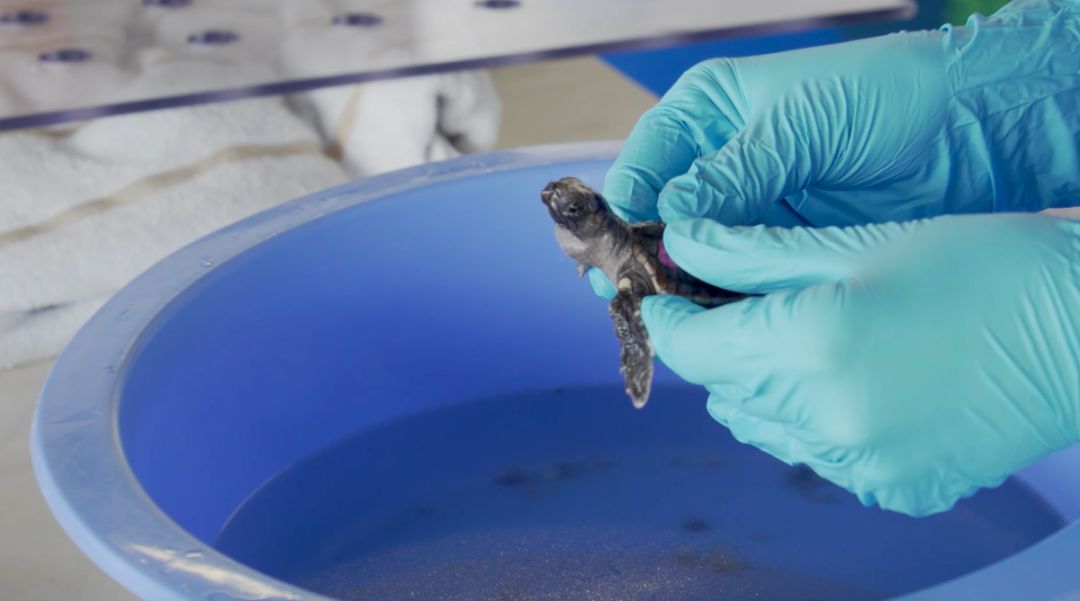Mote Releases Adorable Sea Turtle Hatchlings Into the Wild

Mote staff released over 40 sea turtle hatchlings over the past week, including hatchlings rehabbed at both Mote's Hatchling Hospital and Clearwater Marine Aquarium's marine life hospital.
Over the past week, Mote Marine Laboratory and Aquarium staff released more than 40 tiny and utterly adorable sea turtle hatchlings into the ocean after rehabilitation at its Hatchling Hospital and Clearwater Marine Aquarium's marine life hospital. Many of the hatchlings were hospitalized after they wandered into pools instead of heading for their new lives in the ocean; as a result, they suffered from a variety of ailments, including disorientation and malnutrition.
Sea turtle nesting season runs from May through October (although the first nest was reported in Sarasota in April), and there are still more than 300 nests on local beaches. According to Mote, the most common reason a hatchling finds itself in need of care is due to disorientation, which happens when the baby emerges from its nest and travels toward an artificial light source instead of the water. Because sea turtles have limited energy supply—they are born with a yolk sac that nourishes them for only a limited period of time—expending energy moving in the wrong direction can be deadly. Artificial lighting and other human-made issues are the biggest threat to sea turtle nests and hatchling survival.

A hatchling during rehab at Clearwater Marine Aquarium's marine life hospital.
Simple changes can make an ocean of difference as to whether or not a sea turtle hatchling survives:
- Shield or turn off outdoor lights that are visible on the beach from May through October.
- Close drapes after dark and put beach furniture far back from the water.
- Fill in holes that may entrap hatchlings on their way to the water.
- Do not approach nesting turtles or hatchlings, make noise, shine lights at turtles, or use flashlights, cell phone lights, or fishing lamps on the beach.
- Do not encourage a turtle to move while nesting or pick up hatchlings that have emerged and are heading for the water.
- Do not use fireworks on the beach.
If you find sea turtle hatchlings that are not on the beach or are headed away from the ocean, call FWC’s hotline at 888-404-FWCC (3922). Again, hatchlings heading towards the ocean should be left alone.



